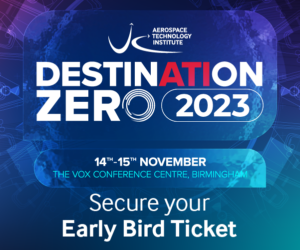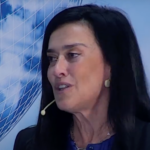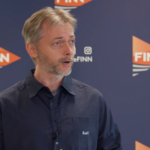Sponsored by the Aerospace Technology Institute
The war on carbon in aviation was first launched by the UK two years ago at the Sustainable Skies World Summit, and it is not just commercial air transport that has joined the battle, it is the military world.
Delegates from across the aerospace sectors were at the exhibition and conference centre at the site of the Farnborough Air Show for the summit, and rather fittingly the event kicked off with a low level fly-past to mark a sustainable historic moment for the Royal Air Force.
The RAF successfully completed a Voyager air-to-air refuelling flight, powered by an approximately 43% blend of Sustainable Aviation Fuel (SAF).
Flying from RAF Brize Norton, over the North Sea and via Farnborough on its return home, the Voyager aircraft also undertook air-to-air refuelling with Typhoons, as part of planned training.
Jet Zero Council
Meanwhile back inside the centre the UK’s Jet Zero Council committed to continue speeding up the design, manufacture and rollout of zero emission aircraft and vital infrastructure at UK airports.
Its latest plan set out how the council will help to accelerate the production of sustainable aviation fuels (SAF), by continuing to invest millions of pounds in first-of-a-kind SAF plants, supporting crucial scientific research on a larger scale, and helping to drive down production costs.
Aerospace Technology Institute
Aerospace Technology Institute made headlines on the first day, announcing their Hydrogen Capability Network’s objectives as well as offering insightful developments on moving quick wins forward.
Meanwhile, Sustainable Aviation – the industry coalition of the UK’s leading airlines, airports, aerospace manufacturers, air service navigation providers, and innovation companies in sustainable aviation fuel and carbon removals – unveiled its latest roadmap to reach net zero by 2050.
IAG
IAG’s head of sustainability Jonathon Counsell, outlined the progress made and excited mainstream media by explaining that 14% of the carbon reduction would come from a drop in passengers because of a rise in ticket prices.
With questions answered and knowledge gained, the sustainability elements in play and the route to net-zero is continuing to be crucial to the industry. With this year’s edition closing its curtains, it is another chapter complete. It is industry’s turn to go and finish the book.Subscribe to the FINN weekly newsletter

